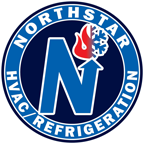The Importance of Air Filtration in HVAC Systems
Written by Ed Rice
In today’s commercial and industrial spaces, air quality and energy efficiency are more critical than ever. While HVAC systems are essential for maintaining comfortable indoor temperatures, their ability to deliver clean, healthy air is equally important. At the heart of this process is proper air filtration.
Whether you manage an office building, manufacturing facility, hospital, or school, understanding the role of air filtration in your HVAC system can help improve occupant health, system performance, and energy savings.
Why Air Filtration Matters
1. Improving Indoor Air Quality (IAQ)
Your HVAC system continuously circulates air throughout your facility. Without proper filtration, this air can carry dust, allergens, bacteria, mold spores, and other contaminants. Poor IAQ can result in:
Increased respiratory issues and allergy symptoms for building occupants.
The spread of viruses and airborne illnesses, particularly in healthcare and densely populated environments.
An uncomfortable indoor environment that negatively affects productivity and wellbeing.
High-quality air filters trap these particles, reducing pollutants and maintaining a healthier environment.
2. Protecting Your HVAC Equipment
Dust, dirt, and debris not only affect indoor air quality but can also clog coils, damage fans, and reduce airflow in your HVAC system. Without proper filtration:
Your equipment works harder, leading to increased energy consumption.
Over time, this can cause premature wear and tear, increasing maintenance costs and shortening equipment lifespan.
Clean air filters help maintain consistent airflow, allowing your system to operate efficiently and reliably.
3. Energy Efficiency and Cost Savings
Clogged or low-quality air filters restrict airflow, forcing your HVAC system to use more energy to circulate air. In fact, according to the U.S. Department of Energy, replacing a dirty, clogged filter with a clean one can lower your air conditioner’s energy consumption by 5% to 15%.
For large facilities running HVAC systems around the clock, these savings add up quickly. Investing in high-quality filters and regularly replacing them is one of the simplest ways to reduce energy costs.
Choosing the Right Air Filter
Air filters are rated by their MERV rating (Minimum Efficiency Reporting Value), which indicates how effectively they trap particles.
For commercial and industrial buildings, a MERV rating of 11–13 is generally recommended for balancing air quality, efficiency, and system compatibility.
Signs It’s Time to Replace Your Air Filter
Noticeable dust buildup around vents.
Reduced airflow or hot/cold spots in your facility.
Unexplained rise in energy bills.
Unpleasant odors or increased allergy symptoms in occupants.
Your filter appears clogged or discolored during inspection.
It’s best to check your air filters every 30 to 90 days, depending on your building’s usage, occupancy, and local air quality.
How Northstar Refrigeration Can Help
At Northstar Refrigeration, we help businesses optimize HVAC performance and indoor air quality with:
✅ Routine HVAC maintenance plans that include air filter inspections and replacements.
✅ IAQ assessments to determine the right filtration level for your building.
✅ System upgrades that improve filtration without compromising airflow or system efficiency.
✅ Guidance on compliance with ventilation and filtration standards, including ASHRAE 62.1 for commercial buildings.
Final Thoughts
Air filtration is more than just a line item on a maintenance checklist—it’s an essential part of protecting your building’s occupants, your equipment, and your bottom line. Clean air filters lead to better air quality, improved system performance, lower energy costs, and longer equipment life.
Ready to improve your facility’s air quality and efficiency? Contact Northstar Refrigeration at (508) 888-3692 to schedule a system evaluation or join one of our preventative maintenance programs today!
(508) 888-3692
www.northstarhvacr.com



